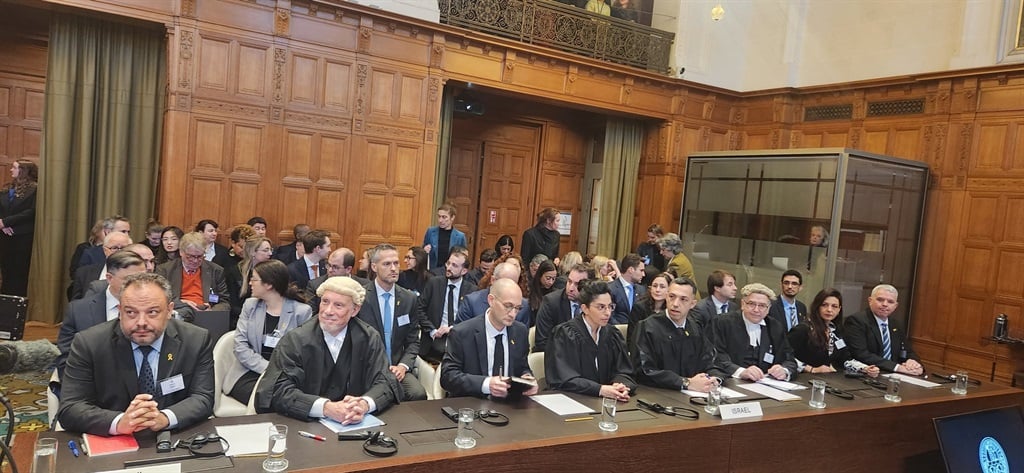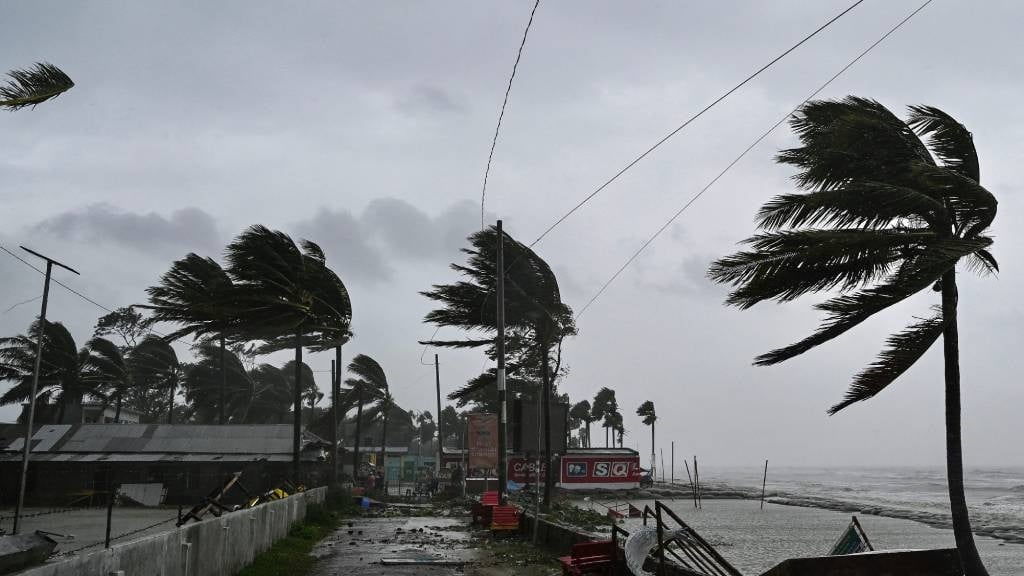
Doctor Omri Sender told the International Court of Justice that South Africa’s claims of genocide in Gaza did not meet requirements for urgency and irreparable harm – and that only Israel would suffer harm that could not be reversed if the court granted to interim order SA seeks.
Lack of risk of irreparable prejudice and urgency
Madam President, Members of the Court, it is an honour to appear before you today on behalf of the State of Israel.
It falls to me to address the condition of risk of irreparable harm and urgency.
This third condition is, of course, dependent on the two preceding ones. Professor Shaw and Ms Raguan have already shown that the provisions relied upon by the Applicant do not afford, even prima facie, a basis on which this Court’s jurisdiction could be founded. They also showed that the rights asserted by the Applicant cannot be regarded as plausible. It follows that the irreparable consequences cannot, in the present case, be caused by the alleged disregard of rights under the Genocide Convention.
Again, this is not at all to say that the humanitarian situation arising from the present armed conflict is not grave. Civilians have been severely affected by the hostilities instigated by Hamas. Its systematic strategy of prosecuting war from under, and within, the civilian population exposes civilians to great risk — and it has brought about great suffering. Israel has done — and is doing — a great deal to alleviate this suffering in very challenging circumstances.
In this regard, the factual account provided by the Applicant is once again entirely one-sided. The Application and Request run to no less than 84 pages, but they make hardly any mention of the extraordinary efforts undertaken by Israel — and by a host of other States and international actors — to improve the humanitarian situation. We again heard virtually nothing from the Applicant on this issue yesterday. But this is a critical factor in the Request before you. As Ms Raguan has shown, it frustrates any attempt to establish the necessary special intent for genocide. It also bears upon the third condition established in your case law.
Madam President, Members of the Court, we know from your case law that the power of the Court to indicate provisional measures will be exercised only in exceptional circumstances. There needs to be, as you have said, “a real and imminent risk that irreparable prejudice will be caused to the rights claimed before the Court gives its final decision”.
READ | IN FULL: Tal Becker says SA’s genocide case is a libel designed to deny Israel self defence
Your Order in the Myanmar case, in which the Genocide Convention was also invoked, suggests that the adoption of “concrete measures aimed specifically at recognizing and ensuring the right” of the group in question to exist would mean that irreparable harm and urgency cannot be established.
Precisely such concrete measures have been taken by Israel, which has been facilitating the provision of more and more humanitarian assistance for people in need throughout the Gaza Strip. These steps have not only been increasing so as to meet the developing situation on the ground. They are continuously undertaken specifically in order to prevent harm to the civilian population.
These efforts have had an impact. Just last week, for example, with the assistance of the World Food Programme, a dozen bakeries re-opened with the capacity to produce more than two million breads a day. The World Food Programme has said that the delivery of flour, salt, sugar and yeast continues, so as to enable more bakeries to re-open, “increasing accessibility and affordability” for thousands of families. And since the Applicant mentioned yesterday the number of trucks entering Gaza each day before and after the war, the accurate average number for trucks specifically carrying food is 70 trucks a day before the war and 109 trucks a day over the last two weeks. All this information may be found in your judges’ folder.
Access to water has also been a priority. As with food supplies, there is no restriction on the amount of water that may enter Gaza. Israel continues to supply its own water to Gaza by two pipelines; it facilitates the delivery of bottled water in large quantities; and it repairs – and indeed expands – water infrastructure that has been damaged by the fighting. An additional water pipe bringing water into southern Gaza from Egypt began operating a few weeks ago.
Access to medical supplies and services is also growing. Israel has so far facilitated the establishment of four field hospitals and two floating hospitals. The establishment of two more hospitals is underway. Israel is facilitating the entry of medical teams into Gaza, as also of vaccinations, including in co-operation with UNICEF. Ill and wounded persons are being evacuated through the Rafah border crossing to Egypt, the United Arab Emirates, Türkiye, Qatar and Jordan. Tents and winter equipment are being distributed as well.
The constant delivery of fuel and cooking gas is also facilitated. According to official data, again in your judges’ folders, from 8 December, the amount of fuel entering Gaza has doubled, and currently stands at 180 000 litres a day. This is a target amount requested by the United Nations itself. Since 21 December, the amount of cooking gas entering Gaza has also doubled, now standing at an average of 90 tonnes per day. Details of this kind, concerning the various ongoing humanitarian efforts, are updated every single day on a designated English website of COGAT, the unit in the Ministry of Defence in charge of monitoring the humanitarian situation. When pressing needs are identified, solutions are soon co-ordinated.
A great effort is indeed invested in eliminating bottlenecks so as to improve the entrance and distribution of aid – notwithstanding Hamas constantly stealing it. As you have heard, a joint operations room involving Israel, Egypt, the United States and the United Nations operates daily to solve, in real-time, logistical difficulties. Israel also co-ordinates with various United Nations agencies and the ICRC to address their own needs. On 15 December, Israel decided to open its crossing at Kerem Shalom with the express intention to “improve and upgrade” the delivery of humanitarian assistance to Palestinian civilians in Gaza. That part of the Government’s decision is in your judges’ folder as well. This has eased congestion at the Rafah crossing and helped facilitate the provision of greater amounts of aid. Israel facilitates air routes as well, for parachuting aid directly into Gaza. Facilitating a maritime corridor is currently being considered with other States.
Madam President, Members of the Court, again these are just some examples. But they show that Israel no doubt meets the legal test of “concrete measures aimed specifically at recognising and ensuring” the rights of the Palestinian civilians in Gaza to exist. It has been the daily work of numerous Israeli officials, of various agencies, to ensure that these and other steps are effectively carried out, at a time when they and their families are themselves under constant attack. A determination that the multilateral large-scale humanitarian effort is lacking, or that scaling up access of humanitarian relief to Gaza would be of no avail, as the Applicant would have you believe, should not be made lightly.
Madam President, Members of the Court, two additional elements warrant your careful attention. They too suggest that the condition of urgency is not as easily met as the Applicant would have you believe.
First, the scope and intensity of the hostilities has been decreasing. Israel’s Defence Minister said last week that Israeli forces would be shifting from the “intense maneuvering phase of the war” toward “different types of special operations”. This statement, made in an interview to international media, is found at tab 16-A of the Volume submitted.
ALSO READ | IN FULL: Galit Raguan tells ICJ Hamas causes civilian suffering, while Israel tries to minimise it
This week, on 8 January 2024, the spokesperson for the Israeli military confirmed that the Israeli campaign had already started a transition to fewer ground troops and fewer airstrikes. “The war shifted a stage”, he said. As you will see in tab 16-B of the Volume, he spoke of a new and less intense phase of fighting. He specifically mentioned that Israel will continue to reduce the number of troops in Gaza. Five brigades, consisting of thousands of soldiers, have already been withdrawn from the territory.
Second, the United Nations Security Council has only recently adopted a resolution for the specific purpose of alleviating the humanitarian situation. By resolution 2720 of 22 December 2023, which is found at tab 16-C of the Volume, the Council demanded the immediate and unconditional release of all hostages, as well as the delivery of humanitarian assistance at scale directly to the Palestinian civilian population throughout the Gaza Strip. More specifically still, the Council requested the Secretary-General to appoint a Senior Coordinator in order to establish a United Nations mechanism for accelerating the provision of humanitarian relief consignments to Gaza. Contrary to what we heard yesterday, this resolution does not “remain unimplemented”. A Senior Coordinator has been appointed and indeed began her work; the Council remains actively seised of the matter.
Israel, for its part, is already working with the Senior Coordinator. And it has just this week co-ordinated the entrance of a United Nations delegation into northern Gaza in order to evaluate the situation and map the needs for a future return of Palestinian civilians. I recall in this connection that in the Aegean Sea case, the Court found that it was not necessary to indicate provisional measures where the government in question showed willingness to act in accordance with the recommendations of the Security Council concerning the matter before the Court.
All these recent developments indicate that the facts as they presently exist do not call for awarding interim relief. They also suggest that the difference between the present case, and earlier cases that have come before you, are very clear.
Finally, the lack of urgency within the meaning of the Court’s case law is further demonstrated by assurances provided before you today by Israel’s Co-Agents. They could not be clearer in stating that Israel remains bound, at all times, by its international legal obligations. Needless to say, this includes Israel’s obligations as a State party to the Genocide Convention. The Applicant will have this Court say that it cannot take the word of a State. That would be not only unfortunate; it would also be contrary to the law on unilateral declarations of States. Unsurprisingly, your consistent case law suggests that assurances of the kind offered by Israel may well render the indication of provisional measures unnecessary.
Madam President, Members of the Court, the conclusion is that the condition of irreparable prejudice and urgency cannot be met. It is Israel and its citizens who would risk irreparable harm if the Request of South Africa were to be granted.
Madam President, distinguished Members of the Court, that concludes my statement. I thank you for your kind attention; and I ask that you now invite Mr Staker to the podium.






Recent Comments